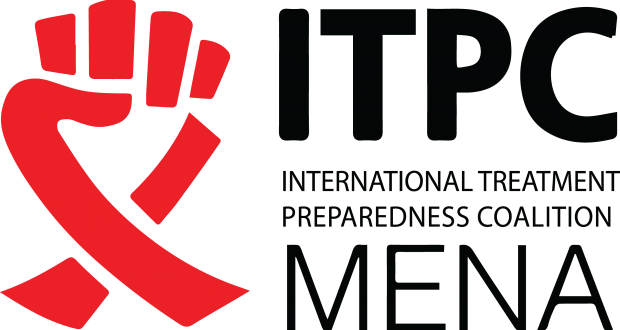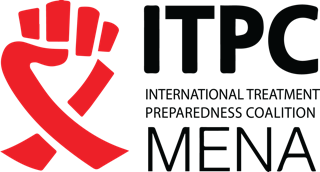
Call for consultant: End-term capacity assessment of two GF MENA sub-recipients (ALCS & ITPC-MENA)
Aim of the Assignment
The aim of this assignment is to support the capacity strengthening component of the multi-country Global Fund grant “Sustainability of services for Key Populations in MENA region”. Specifically, to conduct end-term capacity assessments of grant sub-recipients based in Morocco, ALCS, and ITPC-MENA.
Purpose
In Year 1 of the grant, all SRs underwent a baseline assessment to determine their organizational capacities. The purpose was two-fold – a) to identify weaknesses in their systems/functional areas that might impact the delivery of grant activities; b) to jointly develop a capacity strengthening plan to be implemented over the life of the grant which would result in stronger, more sustainable organizations. In Quarter 4 of Year 3 end-term assessments are required to measure progress on the organizational capacity strengthening. Due to COVID-19 related travel restrictions on the staff of the Principal Recipient, a Consultant based in Morocco is required to conduct the assessments of ALCS (Casablanca) and ITPC-MENA (Marrakech) on their behalf.
Details
The multi-country Global Fund grant “Sustainability of services for Key Populations in MENA region” is a three-year (2019-2021) grant awarded following the funding request submitted by the Applicant, MENA Coalition on HIV and Human Rights (MENA H Coalition)[1]. The grant is managed by Frontline AIDS as Principal Recipient (PR) and implemented by eight sub-recipients – five national CSOs (in Egypt, Jordan, Lebanon, Morocco, Tunisia) and three regional networks.
As a grant focused on sustainability of services in a region that is largely transitioning out of Global Fund support, a substantial budget was allocated to organisational development. It is recognised that in order for high quality HIV services to be delivered by national organisations, and for effective advocacy to be carried out by regional key population networks, strong organisational systems, policies and procedures, and governance are required. As such, one priority area of the grant – included in the Performance Framework Workplan Tracking Measures – is strengthening organisational capacity of grant implementers.
The capacity strengthening approach consists of the following stages:
- Developing a capacity assessment tool (CAT).
- Conducting capacity assessments of all eight SRs and agreeing on a capacity strengthening plan, which includes specific technical assistance (TA) activities.
- Implementing agreed capacity strengthening activities, either in-house by SRs or by contracting consultants.
- Monitoring progress of capacity strengthening plan implementation.
- Assessing final status of all activities and impact on organisational capacity.
This workstream is jointly managed by the Programme Management Unit in Beirut and the UK-based program team. Two Senior Advisors (OD and Global Fund) developed the CAT and carried out the capacity assessments from Sep-Nov 2019.
Implementation of capacity strengthening activities started in Year 2 and continued in Year 3. Final capacity assessments must be carried out by the end of Y3Q4 to allow for results to be incorporated in the Y3 Progress Report. Due to ongoing COVID-19 related travel restrictions on PR staff, a Consultant based in Morocco is required to conduct the assessments of ALCS and ITPC-MENA on their behalf.
Association de lutte contre le Sida (ALCS)
Created in 1988 and registered in 1993, the ALCS is the largest association for the fight against HIV / AIDS in Morocco and in the Maghreb and Middle East region. ALCS is the only association involved both in the prevention of HIV infection and in ensuring access to care and the medical and psychosocial care of people living with HIV.
International Treatment Preparedness Coalition – MENA (ITPC-MENA)
ITPC-MENA was created to strengthen community-based advocacy for HIV care, treatment, and prevention in the region. In 2014 ITPC-MENA registered as an independent organization and in 2015 established its office, headquartered in Marrakech, Morocco.
The assessments will be carried out using the same Capacity Assessment Tool (CAT) utilized in the baseline assessment to allow for the comparison of results. The CAT covers 12 functional areas[2] relevant to an organization that is a civil society Global Fund grant implementer. Following the assessments, updated capacity strengthening plans will be jointly developed with ALCS and ITPC-MENA. Prior to the mission, the Consultant will be briefed on the program and partners, and oriented to the CAT. Detailed instructions on how to use the CAT and develop the capacity strengthening plan will be provided. Following the mission, the Consultant shall produce – in addition to the completed CATs and capacity-strengthening plans – a report documenting any lessons, challenges and solutions, good practices, innovations, reflections, and recommendations.
Expected Deliverables
The assignment timetable is as follows:
| Project Components and Deliverables | Timeframe / Deadline | Indicative Hours / Days |
| Communication, coordination, reporting Kick-off meeting between Consultant and Frontline AIDS to provide orientation to the grant and CAT; agree on timelines; preparatory desk review of relevant documents (to be provided). Communication and coordination with SRs to schedule mission, with the participation of agreed staff/board members communication and coordination with Frontline AIDS. Final debrief meeting with Frontline AIDS and presentation of findings. Produce a final report (first daft – incorporate feedback – final draft). | TBD As needed As needed TBD TBD | 1 day .5 day .5 day 2 days |
| Capacity assessments and strengthening plans Day 1 – Introductions, recap process with SR, begin capacity assessment Day 2-3 – Continue and complete capacity assessment Day 4 – Develop capacity strengthening plan; debrief with SR | TBD | 8 days (4 days per SR) |
| Total | Up to a maximum of 12 days |
Deliverables
- Completed capacity assessments for ALCS and ITPC-MENA
- Capacity strengthening plans for ALCS and ITPC-MENA
- Assignment report
All documents and supporting evidence shall be provided in electronic form to Frontline AIDS.
Required Skills & Experience
- Must not have any current affiliation with the organisation under review.
- Must have a postgraduate degree in Public Health, International development, Project Management, or related field.
- Experience working with the civil society sector is a must. Previous experience working with international organisations is preferred.
- Experience conducting organisational assessments, with knowledge of and experience in the application of standard policies and procedures.
- Knowledge of Global Fund grants and requirements is a plus.
- High level of written and oral communications skills in English and French/Arabic.
- Excellent analytical, organisational, and reporting skills, with attention to detail.
- Effective decision-making skills, sound judgement, and strong technical aptitude.
- Excellent interpersonal, written, and verbal communication skills, with the ability to communicate and interact effectively with all levels of personnel. Diplomatic.
- Ability to maintain strict confidentiality and discretion.
Invoices and Payments
The Consultant will report directly to the Senior Advisor: Global Fund.
The consultant will be paid for the number of days worked (up to a maximum of 12 days) upon submission of all deliverables and invoices, and approval of the Senior Advisor.
Please note: Consultants DO NOT get per diems. Approved expenses will be reimbursed but must be approved prior to incurring the expense(s).
application process
Deadline
20 October 2021
Documents to include in application
- Updated CV
- Cover letter / expression of interest highlighting required skills and experience
- Current daily rate (consultants new to Frontline AIDS will have to provide 3 pieces of evidence of recent rate history)
Contact
Proposals should be submitted to Todd Page, tpage@frontlineaids.org
[1] MENA H Coalition is comprised of AFEMENA, Coalition Plus, ITPC-MENA, MENAHRA, MENANPUD, MENARosa, RANAA, SIBA.
[2] 1) Governance; 2) Financial management; 3) Procurement and supply management; 4) Monitoring and evaluation; 5) Human resources; 6) Programmes; 7) Training; 8) Policy, advocacy, and networking; 9) Resource mobilisation; 10) Communications and IT; 11) CSO values; 12) Safety & security, and safeguarding










